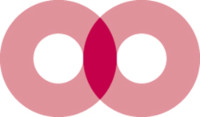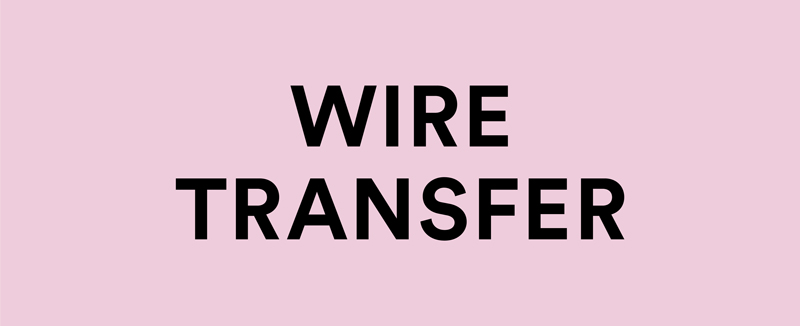Articles with tag:
Events
(7 results)
A new voice from Italy / doppiozero goes international
doppiozero was founded in February 2011 to lend a voice to an often under-exposed and little-discussed collective intelligence that tends to be largely ignored by mainstream culture and media. A different Italy, one that speaks a language different from the official rhetoric, and does not share the pessimistic bent that has conditioned much of Italian public discourse over the past twenty years. This intelligence is the collective contribution of critics, writers, reporters and scholars from a number of different disciplines, all committed to seeking new perspectives in interpreting the social situation, and new ways of understanding cultural traditions, artistic heritage, material culture and lifestyles. Their common goal is to observe contemporaneity in all its facets and to capture in art, literature, cinema, philosophy, architecture, theater, design, experiences and political contexts the seeds of new ways of imagining the world and transforming ourselves. Over the years, doppiozero has built a platform of original writing dedicated to topics, trends, works and essential figures in contemporary culture. doppiozero international intends to offer readers...
Contemporary photography in Benin
The first edition of the Mois de la Photographie, held at the Institut Français of Cotonou, has showcased the work of four Beninese and French photographers – Laeïla Adjovi, Léonce Agbodjelou, Jean-Jacques Moles, and Catherine Laurent – all focusing on contemporary Benin. The exhibition shed light on a little-known scenario, less established and thriving than that of other countries, such as neighboring Nigeria, but increasingly aware of its striking potential (as clearly emerges from the pictures showcased and other projects). Art and culture in Benin are significantly supported by the Institut Français, the French government agency for the promotion of French culture overseas , and Fondation Zinsou, a local foundation operating in the visual arts field and committed to broadening access to reading through a network of mini-libraries spread across the country. Placed next to each other, the works of these four photographers – exhibited in Cotonou from January to March, 2016 – sketch out the image of a country caught between past and future, between the certainties of traditional community life and the challenges of individual freedom, between the remnants of a long and...
Thinking for yourself and within yourself
On April 27th upon the invitation by Art Basel for Non-Profit Visual Arts Organizations, we have launched our first crowdfunding campaign on Kickstarter to implement the sixth chapter of our itinerant educational artistic format AtWork. The campaign is aimed to fund AtWork Addis Ababa, consisting of: a 5-day workshop for young Ethiopian art students and creative talents led by international curator Simon Njami and an exhibition of the created artworks at Addis Foto Fest in December 2016. With your support, we can continue to offer AtWork experience to the students for free. Join our crowdfunding campaign on Art Basel Kickstarter and contribute to nourishing a new generation of creative thinkers that can build the future we are all longing for! lettera27 On the occasion of the campaign’s launch we are publishing Simon Njami’s text that poetically describes the vision behind our educational approach. Enjoy the reading and support our campaign here! Thinking for yourself and within yourself We, however, start from the beginning. We are poor, we have unlearned how to play. We have forgotten it, our hands have unlearned how to dabble. (Ernst Bloch) What Ernst...
Asmarina: post colonial heritages
Italian Version Asmarina, a 2015 documentary by Alan Maglio and Medhin Paolos, follows what they call “voices and images of a postcolonial heritage.” This beautiful documentary (with an absolutely riveting soundtrack) tells the story of Milan’s habesha community, integral to the Porta Venezia neighborhood since the mid-twentieth century. Weaving together the experiences and identities of those who have lived in Italy for generations with those of newly arrived refugees, Asmarina traces the complex networks of colonial legacies, transnational migrations, family ties, and diasporic politics. And through these stories, which can only be understood from a spatially extended and transhistorical perspective, it also forces a serious reconsideration of what we mean when we talk about “Italy” and “Italians.” Still from Asmarina (2015). Diasporic photography Asmarina begins with a montage of photographs: a hand gently moving a magnifying glass over photo slides on a light table; an aging, black-and-white photo; a well-worn family album; crisp pages from the 1983 work of photojournalism Stranieri a Milano. Pictures are laid out on a table, ejected from a printer,...
Filmmaker Fred Kuwornu on Blaxploitalian and representation in cinema.
Fred Kuwornu is an Italian-Ghanaian filmmaker and activist best known for his documentaries Inside Buffalo (2010), about the Black American soldiers who participated in the liberation of Italy during World War II, and 18 Ius Soli (2012), about the children of immigrants in Italy and their struggles for legal and social recognition. This summer, he has begun screening his latest film project, Blaxploitalian: One Hundred Years of Blackness in Italian Cinema (supported by a grant from the Lettera27 foundation). A sweeping documentary inspired by Leonardo De Franceschi’s seminal collection L’Africa in Italia as well as Fred’s own experiences in the Italian film industry, Blaxploitalian recounts the century-long yet underappreciated history of people of African descent in Italian cinema. Like Fred’s previous projects, this documentary has an explicit social mission. He is using Blaxploitalian to connect with an international network of activists who are building on the momentum of #OscarsSoWhite and similar conversations in England and France, with the ultimate goal of developing a platform to support advocacy for greater diversity in media. I have known Fred since 2013; we first...
Why Africa? Changing the Narrative of the World
Why Africa? For many years lettera27 has been dedicated to exploring various issues and debates around the African continent and with this new editorial column we would like to open a dialogue with cultural protagonists who deal with Africa. This will be the place to express opinions, tell their stories, stimulate the critical debate and suggest ideas to subvert multiple stereotypes surrounding this immense continent. With this new column we would like to open new perspectives: geographical, cultural, sociological. We would like the column to be a stimulus to learn, re-think, be inspired and share knowledge. For the opening piece we asked our partners, intellectuals and like-minded cultural protagonists from all over the world to answer one key question, which also happens to be the name of the column: "Why Africa?". We left the question deliberately open, inviting each of the contributors to give us their perspective on this topic from their own context. This first piece is a collection of some of the answers we received, which aims to open the conversation, pose more questions and hopefully find new answers. Elena Korzhenevich, lettera27 Here the column's introduction...
Peter Handke: The Essay Writer
In recent years, critical attention towards the Austrian novelist, playwright and political activist of Slovenian origin, Peter Handke, has focused more on his activism than on his books. In particular, he sparked controversy when he spoke out in support of the Serbian regime, during the sanguinary civil war in former Yugoslavia, and of its leader Slobodan Milošević, both during his trial in the Hague and at his funeral. Many of his most important works are out of print and there are fewer and fewer reprints scheduled, though there may be some change in the air. And yet, his work continues to be translated. Fortunately, this shows that Peter Handke still enjoys a worldwide readership despite the polemics. Donata Wenders, Peter Handke, Chaville 2009 After receiving such prestigious awards as the Kafka prize in 2008, and the Ibsen prize in 2014, Handke’s return to the public eye inevitably stirred up the controversy. Perhaps it is easier to attack Handke for his views than to analyze and comprehend the full range of motivations the writer has given for his opinions. Admittedly, his unquestioning espousal of Milošević’s doctrines is hard to digest, in particular by today’s...









 Since 2011
Since 2011 

